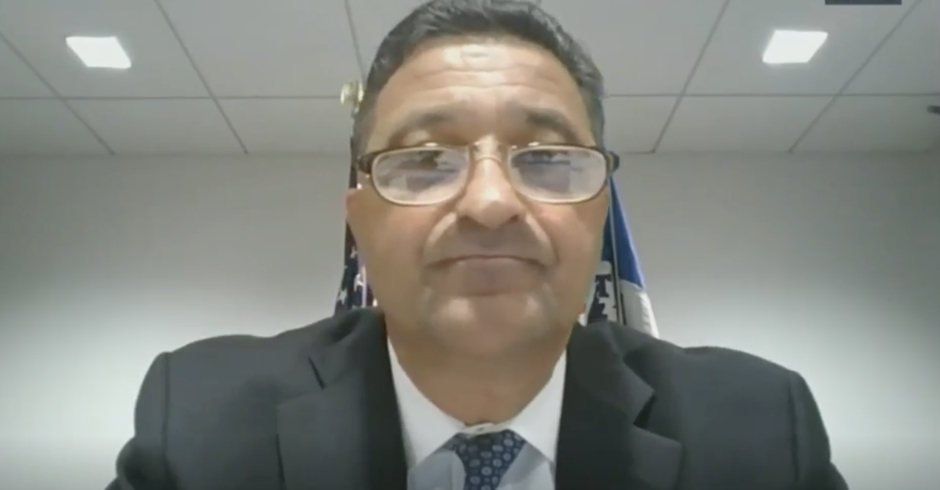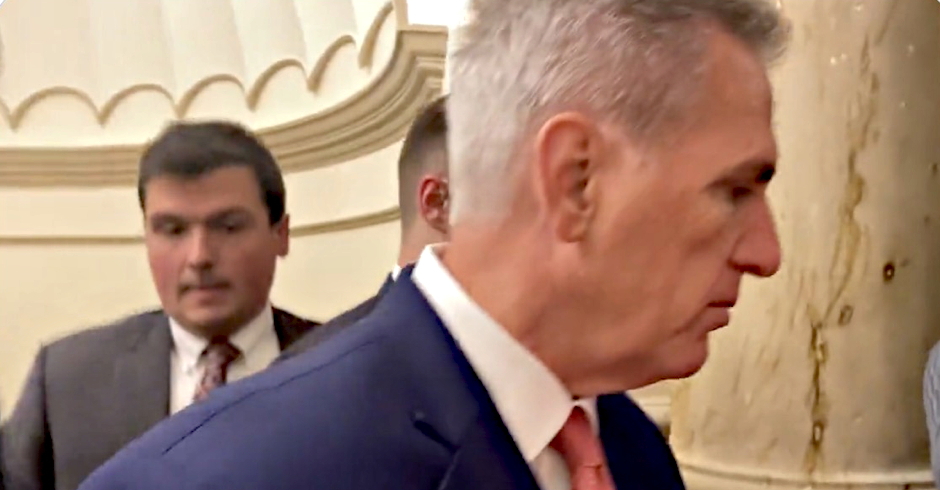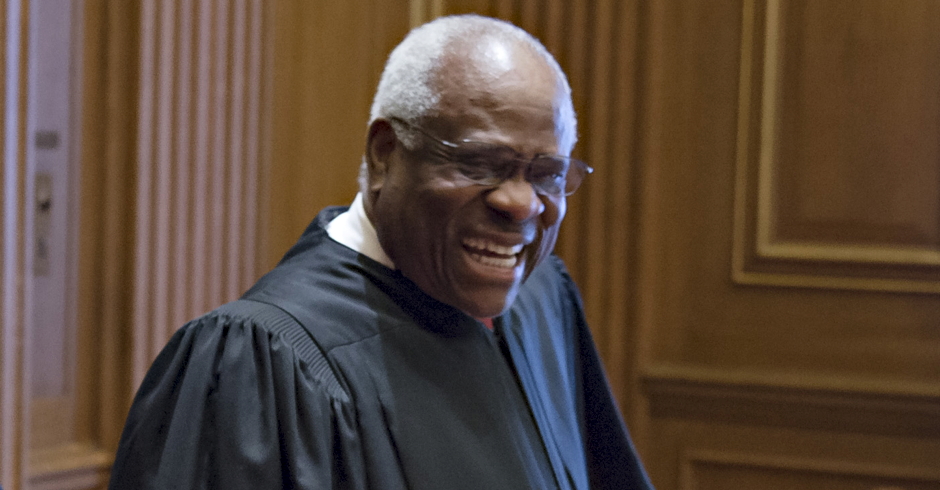CORRUPTION
Top Democratic House Committee Chairs Accuse Embattled DHS IG of ‘Obstruction’ in Warning They Will ‘Ensure Compliance’

Two of the most powerful House Committee chairs have sent a lengthy letter to embattled Dept. of Homeland Security Inspector General Joseph Cuffari detailing his “obstruction” in investigations, revealing their “investigation is focused precisely on potential misconduct in [his] office,” and warning him if he does not comply with their requests they will “have no choice but to consider alternate means to ensure compliance.”
Cuffari (photo), who was installed by then-President Donald Trump in 2019, is already accused of holding back information from Congress, including delaying for many months the release of information that Secret Service agents’ text massages from Jan. 5 and 6, 2021, were erased, and that the cell phones of top Trump appointees at DHS also were erased.
“Since May 2022, we have written to you on three separate occasions to request documents and information about your conduct as Inspector General,” write Carolyn Maloney, Chairwoman of the Committee on Oversight and Reform, and Bennie Thompson, Chairman of the Committee on Homeland Security.
Detailing those instances, they say, “first, following serious allegations that your office censored findings of domestic abuse and sexual harassment by Department of Homeland Security (DHS) employees; second, after you failed to promptly notify Congress of crucial information on the Secret Service’s erasure of text messages related to the January 6, 2021, attack on the U.S. Capitol; and third, after new information emerged on your repeated failures to gather text messages from the Secret Service and other senior officials related to the January 6 attack.”
The two chairs further accuse Cuffari: “you have refused to produce responsive documents and blocked employees in your office from appearing for transcribed interviews. Your obstruction of the Committees’ investigations is unacceptable, and your justifications for this noncompliance appear to reflect a fundamental misunderstanding of Congress’s authority and your duties as an Inspector General. If you continue to refuse to comply with our requests, we will have no choice but to consider alternate measures to ensure your compliance.”
Addressing his handling of the Secret Service investigation, they add they have “grave concerns about your lack of transparency and independence,” and note, “we urged you to step aside from this critical investigation and allow another IG to complete this work.”
READ MORE: ‘Quite Robustly a Coverup’: Rick Wilson Urges J6 Committee to Nail Secret Service for Deleted Texts
They also reveal that Cuffari “removed key information before sending a subsequent semiannual report to Congress in June 2022. An earlier draft version of the report would have provided Congress with a detailed explanation of Secret Service’s ‘resistance to OIG’s oversight activities’ and refusal to produce documents. The draft report also included detailed information about the Secret Service’s erasure of text messages.”
At one point in the eight-page letter they also state: “Career staff in your office reportedly drafted a management alert in October 2021 that would have alerted Congress and the public, but you ‘rejected sending the alert.'”
And they note that Cuffari is refusing their requests while they cite examples when he complied with requests from their Republican predecessors.
“Your failure to comply with our outstanding requests lacks any legal justification and is unacceptable,” they conclude. “Please provide all responsive documents by August 23, 2022, and make the individuals requested for transcribed interviews available by the same date. If you continue to obstruct, we will have no choice but to consider alternate means to ensure compliance.”
The Washington Post adds that Cuffari “has rejected calls from leading Democratic legislators to recuse himself from the investigation into the erasure of text messages that Secret Service agents exchanged during the Jan. 6, 2021, attack on the Capitol, drawing fresh rebukes from lawmakers on Tuesday.”
“Cuffari said forcing him to step aside ‘has no legal basis’ and ‘would upend the very independence that Congress has established for Inspectors General,’ according to the letter he sent to House oversight committees on Aug. 8.”
Read the full letter here.
This article has been updated with the addition of reporting from The Washington Post.
Enjoy this piece?
… then let us make a small request. The New Civil Rights Movement depends on readers like you to meet our ongoing expenses and continue producing quality progressive journalism. Three Silicon Valley giants consume 70 percent of all online advertising dollars, so we need your help to continue doing what we do.
NCRM is independent. You won’t find mainstream media bias here. From unflinching coverage of religious extremism, to spotlighting efforts to roll back our rights, NCRM continues to speak truth to power. America needs independent voices like NCRM to be sure no one is forgotten.
Every reader contribution, whatever the amount, makes a tremendous difference. Help ensure NCRM remains independent long into the future. Support progressive journalism with a one-time contribution to NCRM, or click here to become a subscriber. Thank you. Click here to donate by check.
 |

























